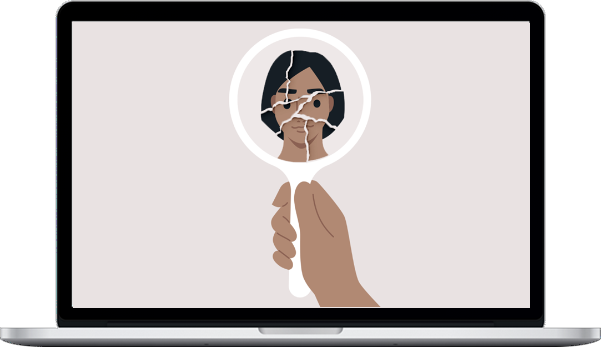NICABM – How To Work With Feelings Of Defectiveness
$197.00 $89.00
»Delivery: Within 21 days
Description
NICABM – How To Work With Feelings Of Defectiveness
Description Of How To Work With Feelings Of Defectiveness
How to Work with a Client’s Core Feeling of Defectiveness
For some clients, there’s a core belief that underlies many of the clinical issues they bring to therapy – a sense of defectiveness.
When a client feels defective, they’re often plagued by shame and self-doubt.
It can leave them feeling like they’re unworthy of change (which is why we often see self-sabotage and regression).
To add to the problem, these entrenched beliefs usually can’t be touched by reason or logic alone . . .
. . . and for many clients, each failed attempt to shift feelings of defectiveness often only amplifies their intensity.
So how can we overcome these therapeutic obstacles and help clients break free of a painful core belief that they’re fundamentally flawed?
We brought this question to 18 of the top minds in the field. Presenting . . .
What You’ll Learn In How To Work With Feelings Of Defectiveness
How to Work with Feelings of Defectiveness
How to Work with Trauma-Fueled Feelings of Defectiveness
Janina Fisher, PhD Terry Real, LICSW Eboni Webb, PsyD
Frank Anderson, MD Zindel Segal, PhD Dennis Tirch, PhD
Chris Willard, PsyD
- Two Specific Ways to Recognize Trauma-Based Feelings of Defectiveness
- How to Address Feelings of Defectiveness Tied to a Client’s Trauma Narrative
- A Parts Approach to Help Clients Externalize and Distance Themselves from Feelings of Defectiveness
- One Strategy to Skillfully Attune to a Client’s Trauma-Based Feelings of Defectiveness
How to Work with Feelings of Defectiveness That Stem From Attachment Disturbances
Terry Real, LICSW Eboni Webb, PsyD
Joan Borysenko, PhD Deany Laliotis, LICSW Chris Willard, PsyD
- One Attachment Style That’s Disproportionately Associated with Feelings of Defectiveness (and How to Work with It)
- Strategies to Help Clients Begin to Cultivate Self-Compassion and Develop Secure Attachment
- Steps to Help Clients Better Understand the Childhood Origins of Their Feelings of Defectiveness
How to Shift Cognitive Patterns That Reinforce Feelings of Defectiveness
Frank Anderson, MD Michael Yapko, PhD
Lynn Lyons, LICSW Zindel Segal, PhD
- One Specific Cognitive Style That Often Fuels Feelings of Defectiveness
- A Parts Approach That Can Help Shift Defective Thoughts
- Specific Questions To Ask Clients Who Struggle with an All-Encompassing Sense of Defectiveness
- How to Approach the Underlying Factors That May Influence a Client’s Sense of Defectiveness
Practices That Can Counteract and Diminish Feelings of Defectiveness
Dennis Tirch, PhD Russell Kolts, PhD
Zindel Segal, PhD Chris Willard, PsyD
- A Three-Step Process to Help Clients Develop Self-Compassion
- How to Skillfully Introduce New Ideas to Clients Whose Feelings of Defectiveness Spur Resistance to Change
- Specific Mindfulness Practices That Can Help Shift a Client’s Relationship with Feelings of Defectiveness
- Strategies to Ease Critical Thoughts and Help Boost a Client’s Self-Worth
Strategies to Help Clients Dislodge Persistent Feelings of Defectiveness
Janina Fisher, PhD Ellyn Bader, PhD George Faller, MS, LMFT
Chris Willard, PsyD Christine Padesky, PhD Michael Yapko, PhD
Russell Kolts, PhD Lynn Lyons, LICSW
- A Three-Step Process to Help Clients Lean Into the Potential for Change
- Two Ways to Challenge a Client’s Narrative of Defectiveness
- One Critical Choice Clients Have to Make to Shed Feelings of Defectiveness (and How to Help Guide Them Through It)
- A Simple Exercise That Can Increase a Client’s Awareness of Damaging Self-Talk
How to Overcome the Unique Challenges of Treating Feelings of Defectiveness
Christine Padesky, PhD Russell Kolts, PhD George Faller, MS, LMFT
Frank Anderson, MD Lynn Lyons, LICSW Janina Fisher, PhD
Kelly Wilson, PhD Chris Willard, PsyD
- One Oversight That Can Decrease the Effectiveness of Interventions with Clients Who Feel Defective
- Six Common Blocks That Can Arise When Treating Feelings of Defectiveness (and How to Work Around Them)
- A Potential False Start to Avoid When a Client Presents with Feelings of Defectiveness (and Where to Start Instead)
- One Common Misconception About Feelings of Defectiveness That Can Lead Treatment Awry
The Impact of Feelings of Defectiveness on a Client’s Relationships (and How to Work with It)
Usha Tummala-Narra, PhD Kelly Wilson, PhD Joan Borysenko, PhD
Chris Willard, PsyD George Faller, MS, LMFT Ellyn Bader, PhD
Russell Kolts, PhD
- Five Specific Ways Feelings Defective Can Impact Relationships (and How to Address Them)
- A Three-Step Strategy to Help Clients Who Feel Defective Repair Ruptures (and Potentially Prevent Future Ones)
- Practical Exercises to Help Clients Better Support Partners Who Feel Defective
About NICABM
We proudly provide continuing education for practitioners who are dedicated to being the best in their craft. Our goal is to develop programs that connect you with the top experts and the latest strategies in the field, to help you achieve better outcomes, more quickly with each of your clients.
More courses from the same author: NICABM
Delivery Policy
When will I receive my course?
You will receive a link to download your course immediately or within 1 to 21 days. It depends on the product you buy, so please read the short description of the product carefully before making a purchase.
How is my course delivered?
We share courses through Google Drive, so once your order is complete, you'll receive an invitation to view the course in your email.
To avoid any delay in delivery, please provide a Google mail and enter your email address correctly in the Checkout Page.
In case you submit a wrong email address, please contact us to resend the course to the correct email.
How do I check status of my order?
Please log in to HealingCourse account then go to Order Page. You will find all your orders includes number, date, status and total price.
If the status is Processing: Your course is being uploaded. Please be patient and wait for us to complete your order. If your order has multiple courses and one of them has not been updated with the download link, the status of the order is also Processing.
If the status is Completed: Your course is ready for immediate download. Click "VIEW" to view details and download the course.
Where can I find my course?
Once your order is complete, a link to download the course will automatically be sent to your email.
You can also get the download link by logging into your HealingCourse account then going to Downloads Page.
Related products
Total sold: 1
Total sold: 2
Total sold: 3








